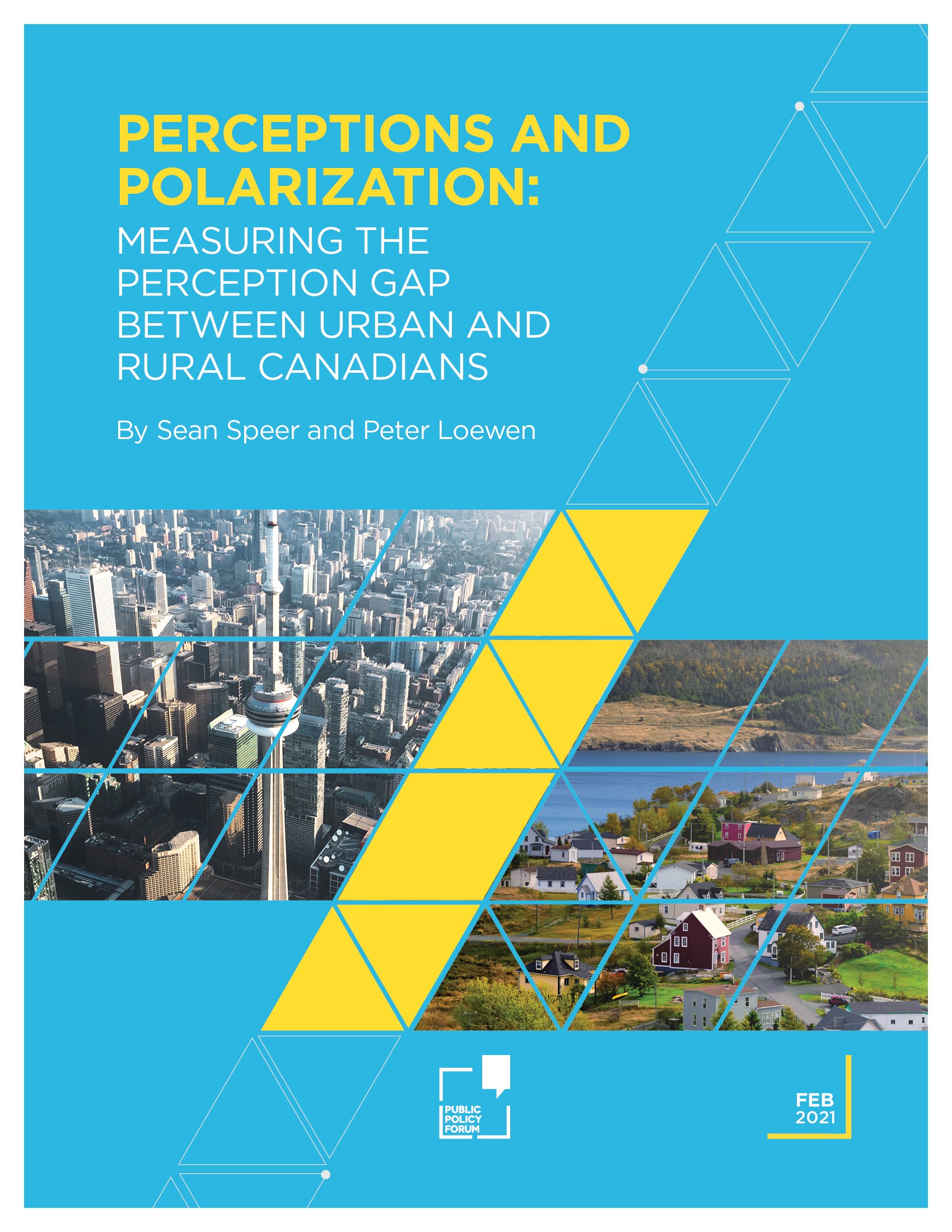
Perceptions and Polarization
Measuring the Perception Gap Between Urban and Rural Canadians
Look out for upcoming analysis and recommendations on bridging the urban-rural divide
The recent U.S. presidential election (and its chaotic post-election tensions) highlight the risks of growing political polarization. This experience ought to be a wake-up call for policymakers and citizens around the world of the destructive consequences of an “us” versus “them” political dynamic and how it may manifest itself in their own jurisdictions.
One potential fault line in Canada is the urban-rural divide. Canadian policymakers should pay closer attention to divergent experiences, perspectives, and voting patterns among urban versus rural populations. Only by understanding what unites and divides us can policymakers hope to govern in a manner that is inclusive and responsive to all Canadians.
This report is the first in a two-part series by PPF’s Prime Ministers of Canada Fellow Sean Speer on the urban-rural divide in Canada. The report aims to fill an empirical gap in what we know about how urban and rural Canadians perceive one another’s circumstances, experiences and perspectives.
Drawing on original survey work conducted by University of Toronto’s Policy, Elections and Representation Lab, the report analyses how urban, suburban and rural Canadians perceive the economic, cultural and political conditions in cities, suburbs and rural communities in order to see how we perceive one another’s circumstances and perspectives and whether our perceptions are influenced by where we live. A “perception score” enables us to measure the intensity of differences in perceptions across people and places.
This analysis finds that, although Canadians perceive significant differences in the economic, cultural and political conditions between cities, suburbs and rural communities, there are only minimal differences in our perceptions. That is to say urban, suburban and rural Canadians share similar perceptions of the magnitude of differences between urban, suburban and rural life in Canada. We have broadly similar understandings about how our fellow citizens think, live, work, and vote.

PPF is grateful to the RBC Foundation for its support of this Prime Ministers of Canada Fellowship.









